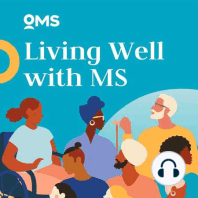10 min listen
Ask Jack #1 | S3E33 bonus
ratings:
Length:
48 minutes
Released:
Mar 17, 2021
Format:
Podcast episode
Description
Welcome to the inaugural episode of Ask Jack, featuring the prodigious culinary talents of professional holistic chef Jack McNulty answering food-related questions generated by you, our community. Check out the show notes below that dig deeper into the topics covered on this episode. Set your dials to this station when Ask Jack #2 premieres on May 12, 2021, and don’t forget to submit your questions for Jack by emailing them to podcast@overcomingms.org. Healthiest Cookware Options The goal of any cookware is to conduct heat evenly and efficiently while remaining chemically non-reactive. No single pan meets these goals completely. Here’s a brief breakdown on the plusses and minuses of different cookware options: Ceramics (Earthenware, Stoneware and Glass): chemically stable and non-reactive. No impact on taste/flavors. Not good at higher temperatures. Always avoid any ceramic with lead glazing. Enamelware: thin layer of powdered glass infused on steel or iron creates a non-reactive surface with some degree of non-sticking. Holds heat well over a long time. Not good in conditions of rapid heating or cooling. Susceptible to chipping. Particularly suited for slow cooking using lower temperatures either on the stovetop or in an oven. Aluminum: lower cost and lightweight. Excellent heat conductivity providing fast and even heating. Anodized aluminum means they have been treated with a thin protective layer that is non-sticking. Aluminum cookware without treatments reacts to acids and alkaline foods, altering appearance and flavor. Copper: best material in terms of conductivity. Expensive option. Most copper pans are lined with stainless steel or tin. They are not good when heated or cooled rapidly. Susceptible to rapid degradation when used in higher temperature cooking (230°C or 450°F). Iron and Carbon Steel: good conductor of heat but can be uneven. Can also react with and discolor food. Absorbs and holds heat extremely well over longer periods. Once preheated, cooking temperatures can be reduced. Non-stick surface can be created when ‘seasoning’ the cookware. Heat unsaturated oil for several hours in a moderate oven, then cool and wipe clean. Appropriate 1-2 times per year. Avoid abrasives and dishwashers to keep surface ‘seasoned’. Use of oil in pan during seasoning process has no negative effect on food – it is OMS safe. Stainless Steel: iron and carbon mixture. Expensive option, but also long-lasting when cared for. Decent heat conduction and non-reactive to food. Closest to meeting ultimate objective of a good pan. Always preheat pan over moderate to low temperatures before adding food or liquids. Avoid dishwashers to prolong life. Non-Stick Pans: non-stick surfaces are created from thin layer of a chemical compound (Teflon or other modern versions). Short shelf life of less than 3 years. Not appropriate at high temperatures, which could cause toxins or warping of pans. Easily scratched. Avoid dishwashers, abrasive cleaners and abrasive utensils. Can be used for effective non-stick cooking at low temperatures. Light coating of oil in pre-heated pan enhances non-stick surface. Green Pans: a type of non-stick pan. Thin layer of ceramic applied to surface rather than a chemical compound. Safer non-stick option than most non-stick pans, but still perform poorly at higher temperatures. Susceptible to cracking and chipping. Short shelf life. Extra Tips: how to limit use of oil in cooking for cookware types… Cast Iron and Carbon Steel: make sure your pan is well-seasoned at all times. Preheat the pan before adding your food. Avoid using any kind of cooking utensil that will scratch the surface. It is ok to allow food to stick briefly to the pan; just release the food with a small amount of liquid. Ceramics: preheat the pan or pot slowly over low heat. Avoid using temperatures above medium and make sure to cool the pan or pot slowly at room temperature. Preheat before oven use. Non-Stick
Released:
Mar 17, 2021
Format:
Podcast episode
Titles in the series (100)
Coffee Break #1 with Maisie Markham | | S2E19 bonus: A quick chat with OMSer Maisie Markham, coming to you from the Cotswolds in the UK by Living Well with Multiple Sclerosis
